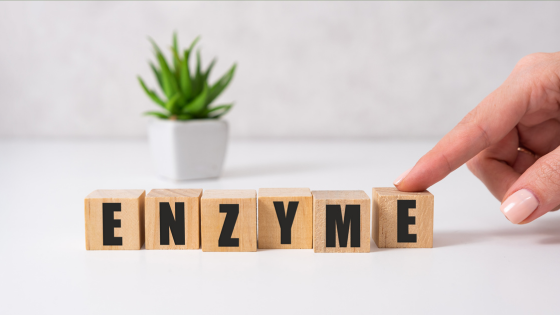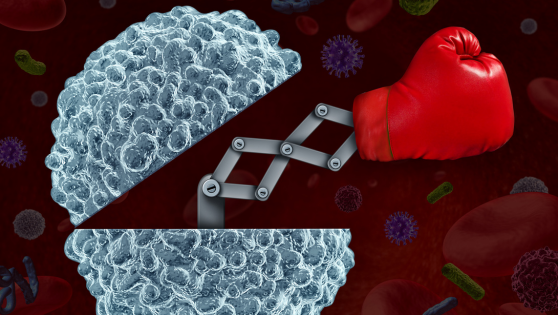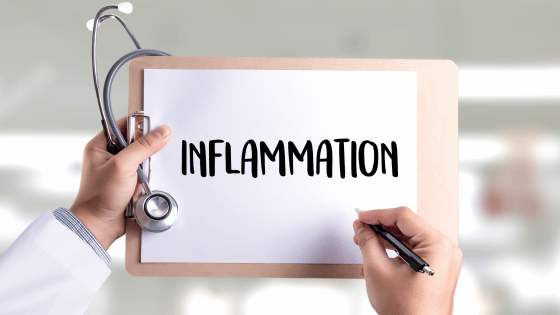
Overlooking the Role of Chewing in Digestion
While we often focus on the quality of the food we eat and the importance of a balanced diet, we tend to overlook the crucial role that chewing plays in the digestive process. Chewing, or mastication, is the mechanical process of breaking down food into smaller particles in preparation for digestion.
It is common to underestimate the significance of chewing because it seems like a simple and automatic action. However, taking the time to thoroughly chew our food can have profound effects on our digestive health and overall well-being.
Chewing is the first step in the digestive process and sets the stage for optimal nutrient extraction. It prepares food for further digestion and absorption by increasing the surface area of food particles, making it easier for digestive enzymes to act upon them. Additionally, chewing stimulates the release of saliva, which contains enzymes that initiate the digestion of carbohydrates.
By overlooking the role of chewing in digestion, we miss out on the numerous benefits it offers. In the following sections, we will explore six key benefits of chewing for better digestion, shedding light on the importance of this often underestimated practice.
The Benefits of Chewing
Benefit 1: Enhanced Nutrient Absorption

Chewing food thoroughly offers the remarkable advantage of enhanced nutrient absorption. The process of chewing breaks down food into smaller particles, increasing its surface area. As a result, digestive enzymes have improved access to the food, allowing them to break down nutrients more effectively.
When we chew, our teeth mechanically grind and crush the food, reducing it into smaller fragments. This breakdown process exposes a greater surface area of the food, enabling digestive enzymes to access and act upon it more efficiently. For instance, carbohydrates are first broken down by the enzyme amylase, which converts complex starches into simpler sugars. Lipase, another digestive enzyme, aids in the breakdown of fats, while proteases assist in protein digestion.
Thorough chewing ensures that the food is adequately broken down into smaller particles, facilitating the action of digestive enzymes and optimizing nutrient absorption. By taking the time to chew our food properly, we can harness the benefits of enhanced nutrient breakdown and absorption, providing our bodies with the essential components they need for optimal health and functioning.
Benefit 2: Increased Saliva Production
One of the often-overlooked benefits of chewing is the increased production of saliva, which plays a crucial role in the digestion process. Saliva is a watery fluid that contains essential enzymes and lubricants necessary for the initial breakdown of food and the facilitation of swallowing. Thorough chewing stimulates the salivary glands, leading to a higher production of saliva.
Saliva serves multiple functions in digestion. Firstly, it moistens food, making it easier to chew and swallow. This moistening action helps in the mechanical breakdown of food, preparing it for further digestion. Secondly, saliva contains enzymes such as amylase that initiate the digestion of carbohydrates. The longer we chew, the more saliva is produced, enhancing the availability of these digestive enzymes and promoting the initial stages of carbohydrate digestion.
By chewing our food properly, we stimulate the salivary glands, resulting in increased saliva production. This, in turn, aids in the breakdown of food and the initiation of digestion, making the entire process smoother and more efficient. So, next time you take a bite, remember the importance of chewing and its role in stimulating saliva production for optimal digestion.
Benefit 3: Enhanced Digestive Enzyme Activity

Digestive enzymes play a vital role in breaking down the complex molecules present in food into smaller, more manageable components that can be absorbed by the body. Thorough chewing has a direct impact on the activity of these enzymes, leading to enhanced digestion.
When we chew our food for an extended duration, it signals the body to release a greater quantity of digestive enzymes. The longer the chewing process, the more time the enzymes have to act on the food. Amylase, lipase, and proteases are examples of digestive enzymes that are released in response to chewing. Amylase aids in the digestion of carbohydrates, lipase breaks down fats, and proteases assist in protein breakdown.
Research has shown that the duration of chewing significantly influences enzyme activity. Longer chewing times have been associated with increased enzyme release, allowing for a more thorough digestion of nutrients. Therefore, by taking the time to chew our food adequately, we can support the optimal release and activity of digestive enzymes, facilitating efficient breakdown and absorption of nutrients.
Chewing duration has a direct impact on digestive enzyme activity. Thorough chewing stimulates the release of digestive enzymes, aiding in the breakdown of food components such as carbohydrates, fats, and proteins. By paying attention to our chewing habits and taking the time to chew our food thoroughly, we can promote enhanced digestive enzyme activity and optimize the overall digestion process.
Benefit 4: Improved Satiety and Portion Control

Thorough chewing can have a positive impact on our feelings of satiety and help us exercise better portion control. The act of chewing not only allows us to break down food but also gives our bodies time to register the feeling of fullness.
When we chew our food thoroughly, it takes longer to consume a meal. This extended chewing time provides an opportunity for our bodies to send signals to the brain that we are becoming full. By slowing down our eating pace and thoroughly chewing each bite, we give our brain the chance to recognize the signals of satiety, helping us to stop eating before overindulging.
Furthermore, chewing stimulates the release of hormones involved in regulating appetite, such as leptin and ghrelin. These hormones play a crucial role in signaling feelings of hunger and fullness. By taking the time to chew our food adequately, we support the proper release and balance of these hormones, promoting a sense of satiety and preventing overeating.
Thorough chewing allows our bodies to recognize the feeling of fullness more effectively. By slowing down our eating pace and thoroughly chewing our food, we can enhance our satiety levels, support portion control, and avoid the tendency to overeat.
Benefit 5: Enhanced Gut Motility
Chewing plays a significant role in promoting proper gut motility, which refers to the movement of food through the digestive tract. The act of chewing stimulates the enteric nervous system, a complex network of nerves that regulates gut function.
When we chew our food thoroughly, the chewing motion and stimulation of taste receptors send signals to the enteric nervous system, triggering a coordinated response in the muscles of the gastrointestinal tract. This response leads to increased gut motility, including rhythmic contractions known as peristalsis. Peristalsis helps propel food through the esophagus, stomach, and intestines, ensuring that the digestive process proceeds smoothly.
In addition to enhancing gut motility, chewing also promotes proper gastric emptying. Thorough chewing allows food to be broken down into smaller particles, making it easier for the stomach to empty its contents into the small intestine. This efficient gastric emptying helps prevent issues such as bloating, discomfort, and delayed digestion.
Chewing is instrumental in activating the enteric nervous system and promoting proper gut motility. By thoroughly chewing our food, we support the rhythmic contractions of the gastrointestinal tract and facilitate smooth gastric emptying, leading to improved digestive function and overall gastrointestinal health.
Benefit 6: Improved Nutrient Breakdown
Thorough chewing aids in the mechanical breakdown of food, which sets the stage for optimal nutrient breakdown. The process of chewing breaks down food into smaller particles, making it easier for digestive enzymes to access and break down nutrients effectively.
When we chew our food thoroughly, the teeth grind and crush the food into smaller fragments. This mechanical breakdown increases the surface area of the food, allowing digestive enzymes to act upon it more efficiently. As a result, nutrients such as carbohydrates, fats, and proteins are broken down into simpler forms that can be readily absorbed by the body.
By promoting thorough chewing, we also reduce the workload on the stomach and intestines. When food is adequately broken down before it reaches the stomach, the digestive system doesn’t have to work as hard to break it down further. This reduces the strain on the digestive organs, optimizing their function and allowing for better absorption and utilization of nutrients.
Benefit 7: Enhanced Mindful Eating and Enjoyment of Food
Thorough chewing promotes mindful eating and enhances our overall enjoyment of food. By taking the time to chew our food properly, we naturally slow down our eating pace and become more present and aware of the sensory experience of eating.
Mindful chewing allows us to savor the flavors, textures, and aromas of our food, leading to a heightened appreciation for the culinary experience. By being fully present during meals, we can engage all our senses and derive greater satisfaction from the act of eating.
Furthermore, chewing thoroughly can aid in digestion by breaking down food more effectively, reducing the likelihood of digestive discomfort or bloating that may result from hurried eating or inadequate chewing.
By incorporating thorough chewing into our eating habits, we can cultivate a deeper connection with our food, promote mindful eating, and derive greater pleasure from the nourishment it provides.
Overall, thorough chewing ensures the mechanical breakdown of food, enhancing the accessibility of nutrients to digestive enzymes. By reducing the workload on the stomach and intestines, thorough chewing supports optimal nutrient breakdown and absorption, contributing to overall improved digestion and nutrient utilization.
If you are looking for more tips and support, join me over on my group page, The Village – A Natural HEALing Community, to get tons of information, tips and recipes to help you take your HEALTHY EATING and ACTIVE LIVING to the next level.
REFERENCES
- Nakamura, Y., Yamamoto, T., Sakai, K., Okamura, K., & Yamamoto, T. (2013). Influence of Chewing on the Absorption of Fat, Protein, and Carbohydrate in Rats. Journal of Nutritional Science and Vitaminology, 59(5), 389-396. https://www.jstage.jst.go.jp/article/jnsv/59/5/59_389/_pdf
- Hetherington, M. M., Boyland, E. J., Caudwell, P., Gibbons, C., Cruickshank, J. K., & Clifton, P. G. (2018). Effects of chewing on appetite, food intake and gut hormones: A systematic review and meta-analysis. Physiology & Behavior, 184, 45-53. https://doi.org/10.1016/j.physbeh.2017.11.009
- Kresnowati, M. T., Ananta, E., & Ardhana, M. M. (2012). The effect of chewing time on the release of glucose and fructose in the mouth and in vitro carbohydrate digestion. Journal of Functional Foods, 4(1), 197-204. https://doi.org/10.1016/j.jff.2011.08.002
- De Castro, J. M. (2007). The effects of the spontaneous ingestion of particular foods or beverages on the meal pattern and overall nutrient intake of humans. Physiology & Behavior, 90(2-3), 431-439. https://doi.org/10.1016/j.physbeh.2006.10.003
- Tolessa, T., GebreMichael, M. Y., & Abebe, W. (2017). Effect of chewing gum on gastric motility: A systematic review and meta-analysis of gastric emptying. Journal of Neurogastroenterology and Motility, 23(3), 353-362. https://doi.org/10.5056/jnm16161
- Zaric, D. D., Bojic, M., Ametovic, I., & Djuric, M. (2018). Influence of mastication on the digestibility of protein. Acta Veterinaria, 68(4), 502-510. https://doi.org/10.2478/acve-2018-0041






+leave a comment . . .